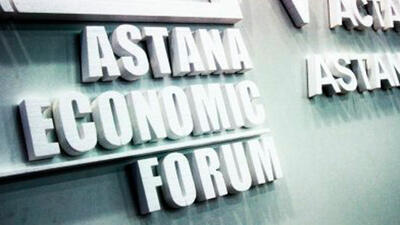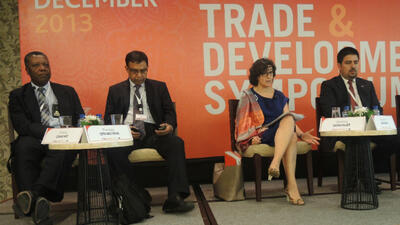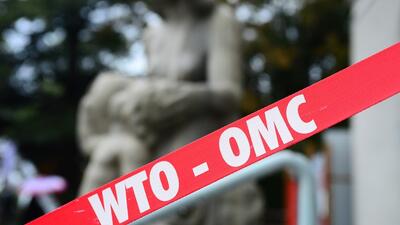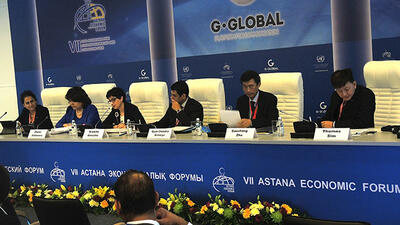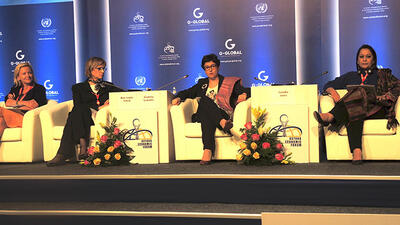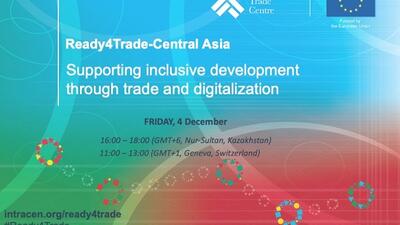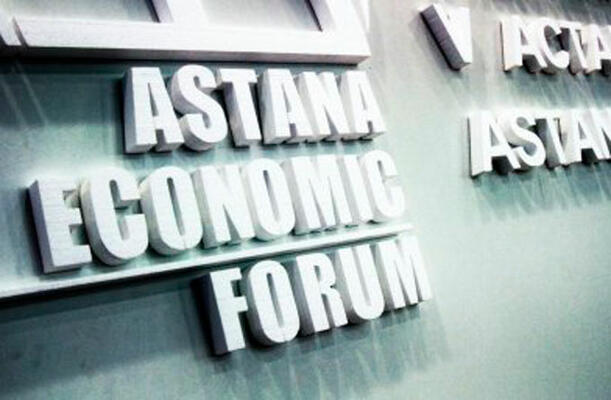
Reducir los obstáculos para el comercio en Kazajistán (en)
Kazakhstan should further develop its road and rail infrastructure and remove regulatory and procedural barriers to trade affecting the country’s businesses, according to a study by the International Trade Centre (ITC) and the United Nations Economic Commission for Europe (UNECE). Specifically, the study urges the country to improve border controls and reduce documentary requirements to reduce non-tariff barriers.
The main findings of the study, commissioned by the Government of Kazakhstan, were presented at the 6th Astana Economic Forum on 22 May, in a panel session called, ‘Addressing Non-Tariff Barriers to Trade: from Business Concern to Policy Action’.
The study, carried out in 2012, finds that road and rail networks need to be improved, with traders, railway representatives and truck operators saying that there are bottlenecks in the system that slow down the movement of goods. The study recommends speeding up the liberalization of the transport sector and further developing infrastructure, particularly improving the railway system at the main border-crossing points with China. It also suggests increasing storage capacity in cities where there are important rail intersections and improving the quality and supply of rolling stock.
.
Anders Aeroe, Director of ITC’s Division for Market Development, said: ‘In Kazakhstan, technical requirements, conformity assessment, and rules and certificate of origins are perceived by many companies as substantial barriers to trade. Kazakh companies are affected by high transport costs because of the country’s landlocked and remote position and are especially sensitive to any increase in trade costs. Consequently, the costs related to non-tariff barriers affect their competitiveness.’
Expanding logistical services
The study shows that Kazakhstan should expand the range of logistical services that are available to traders and to establish a modern legal framework. It highlights the difficulties faced by businesses in relation to documentary requirements, which often see traders submitting the same data several times.
The study also suggests improving border controls and suggests further strengthening of inter-agency coordination at the borders, and simplifying, rationalizing and standardizing cross-border procedures. It suggests that Kazakhstan develops a system of standardization, technical regulations and quality control, and says that the government should consider setting up an independent national standardization body to further harmonize existing conformity assessment procedures and technical regulations, particularly in the area of safety requirements, and developing the capacities of its calibration laboratories.
As a follow-up to the assessment, UNECE is working with the Kazakh National Advisory Committee to develop an implementation plan of the recommendations, by priority. The Government of Kazakhstan has also requested ITC’s technical assistance in the development of a National Export Strategy, aimed at boosting exports. The strategy will set clear priorities and objectives in the development of the non-oil export sector in Kazakhstan and outline a five-year plan of action and implementation of a management framework.
The full study will be available in a joint ITC/UNECE publication to be issued in mid-2013 .





